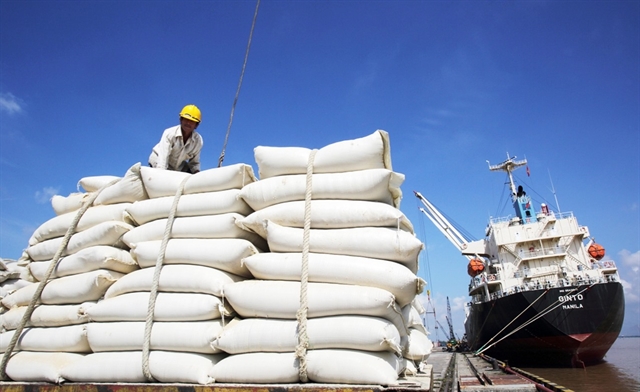 Economy
Economy


|
| Rice is a potential item for Viêt Nam to export to the Italian market. — Photo baochinhphu.vn |
HÀ NỘI —There remains room for Vietnamese enterprises to promote their exports of farm produce such as rice and seafood to Italy besides other export items, according to the Vietnamese Trade Office in Italy.
Italy is currently Việt Nam's fourth-largest trading partner in the EU behind only the Netherlands, Germany and France while Việt Nam is Italy's largest trading partner in ASEAN with bilateral trade turnover continuously increasing over the years, the office said.
Over the 11 months since the EU-Việt Nam Free Trade Agreement (EVFTA) officially took effect (from August 2020 to the end of June 2021), Việt Nam's export turnover to Italy reached US$7.8 billion, up 22.8 per cent over the same period before the effectiveness of the EVFTA (from August 2019 to the end of June 2020).
In the first half of 2021 alone, two-way trade saw a yearly rise of 29.3 per cent to hit $2.29 billion. Of which, Việt Nam exported $1.5 billion worth of goods to Italy, up 32 per cent over the same period last year while its imports from the market topped $759 million, up 25 per cent year-on-year.
Vietnamese major export staples to the Italian market included computers, electronics and parts, phones and components, machinery, spare parts, seafood, coffee, textiles and garments and footwear.
Notably, Việt Nam is the leading provider of peeled cashew nuts for Italy, accounting for about 60-70 per cent of the country's total cashew imports.
However, the volume of rice Italy imported from Việt Nam is still lower than that of other countries, the office noted.
For example, Italy imported only 7,000 tonnes of Vietnamese rice for a turnover of $5 million in 2019, accounting for 3.1 per cent of Italy's rice import market share. Meanwhile, the European country imported 70,000 tonnes of rice from Pakistan for a value of $64 million, 19,000 tonnes of rice from Thailand for $21 million and 16,000 tonnes of rice from India for $18 million.
Despite huge potential available in the market, Vietnamese businesses needed to comply with strict technical standards, regulations on certification and packaging as Italy is a member of the EU bloc, the office warned.
A complicated legal environment and high technical regulations and standards for products related to health or the environment could cause trouble for Vietnamese exporters, it said, adding that harsh competition from foreign rivals in terms of the prices and model of export products was also problematic.
It suggested the firms study the tastes of Italian consumers and survey their demands for the products they intended to export and learn about the market share of competitors if they wanted to effectively tap into this lucrative market. — VNS




